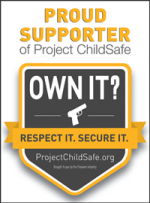The Times Dispatch has the story
here.
In 2011, the first year Virginia State Police began tracking gun show transactions, 10.6 percent of the people denied permission to buy firearms were charged with an offense related to being someone legally prohibited from possessing a firearm. That proportion rose to 12.4 percent in 2012 and more than doubled to 27 percent last year.
The State Police noted that not all people denied correspond to a previous crime that makes them a prohibited persons.
Some misunderstand what they are required to disclose on the background check form or unknowingly provide false information, others don’t satisfy identification requirements, and a few are accidentally flagged as being prohibited from buying a gun, among various reasons.
Not suprisingly, when you look at the actual number of denials, the number is quite small compared to the number of transactions.
The number of denials rose slightly from 359 in 2011 to 380 in 2012, but fell sharply to 263 last year.
And when you look at the number os people actually charged, it confirms what the U.S. Department of Justice research arm, the National Institute of Justice found, that
very few criminals attempt to get their firearms at gun shows.
Despite last year’s drop in denials, the number of arrests at gun shows continued to climb steadily, from 38 in 2011, to 47 in 2012 to 71 last year.
Thomas R. Baker, a criminologist and an assistant professor at Virginia Commonwealth University’s L. Douglas Wilder School of Government and Public Affairs, who did an intensive study on the number of firearm sales over the last six years and crime rates over the same period, believes that the drop in denials can be attributed to the repeal of "one gun-a-month" because people who attempted to puchase a second handgun before the expiration of the 30 days since their last purchase were listed as denials. Handgun rationing was repealed in 2012.
He noted that between 2000 and 2012, rejections based on attempts to purchase more than one handgun per month among all commercial venues (including gun stores and gun shows) was the most common source of denial during that period, larger than even denials for prior felony convictions.
While Baker tries to make the case that the numbers should lead everyone to support so-called "universal background checks" the real take away should be when the law is enforced, people who should not be purchasing firearms will be stopped, as they have been increasingly in Virginia.








No comments:
Post a Comment